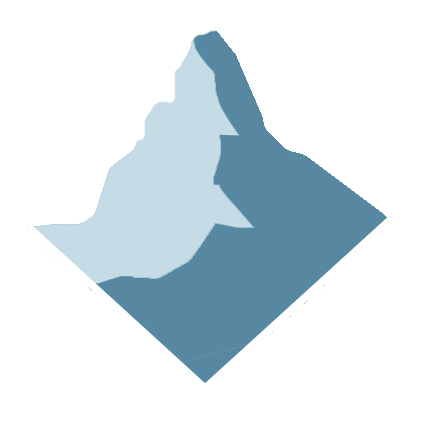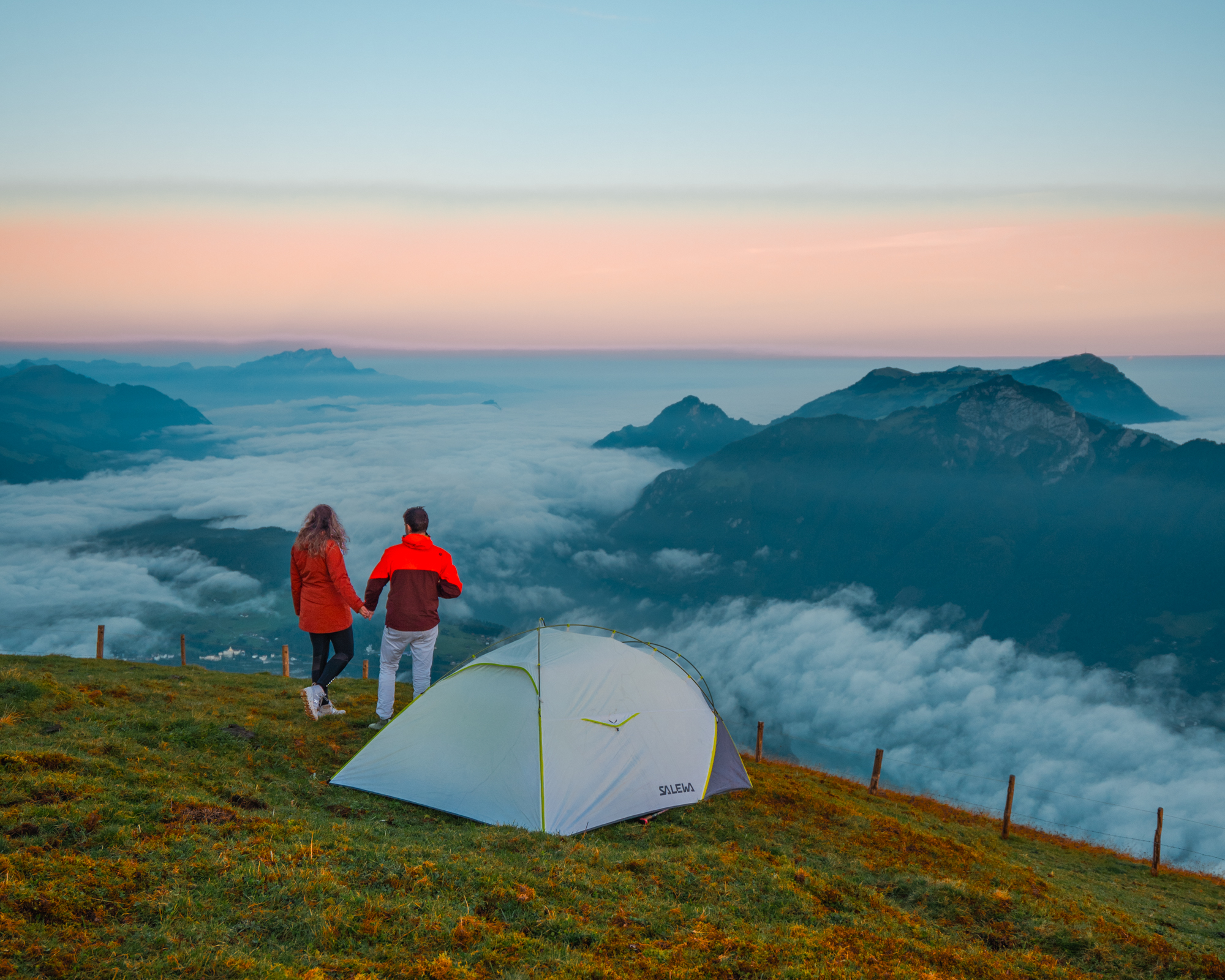Switzerland On A Budget
“Switzerland is so beautiful, but I can’t afford it”
“Wow, I’d love to go to Switzerland too, but it’s so expensive!”
“I would love to go to Switzerland too, but I have to save a lot…”
These and similar comments can be found under Instagram pictures or in our private messages. Yes, Switzerland is one of the most expensive countries in the world, but it’s definitely not impossible to travel to! Switzerland can also be experienced on a smaller budget.
We spent a week traveling in our adopted country and applied our own money saving tips and came up with an average of €60 per day per person.
For people who travel exclusively in Southeast Asia and have a daily budget of only €20 – €30, this may still be too high, but for a “normal” vacation, the amount is actually not very high, considering that you are in one of the most expensive places in the world.
So how do we come up with such an amount? Here are our tips for traveling in Switzerland on a budget. Enjoy your trip!
Please note: We would like to point out that these tips are best suited for a trip during the summer months. If you’re coming for a winter vacation, many of these tips won’t be feasible, as a ski pass costs a lot of money, as does equipment rental and lodging near the slopes.
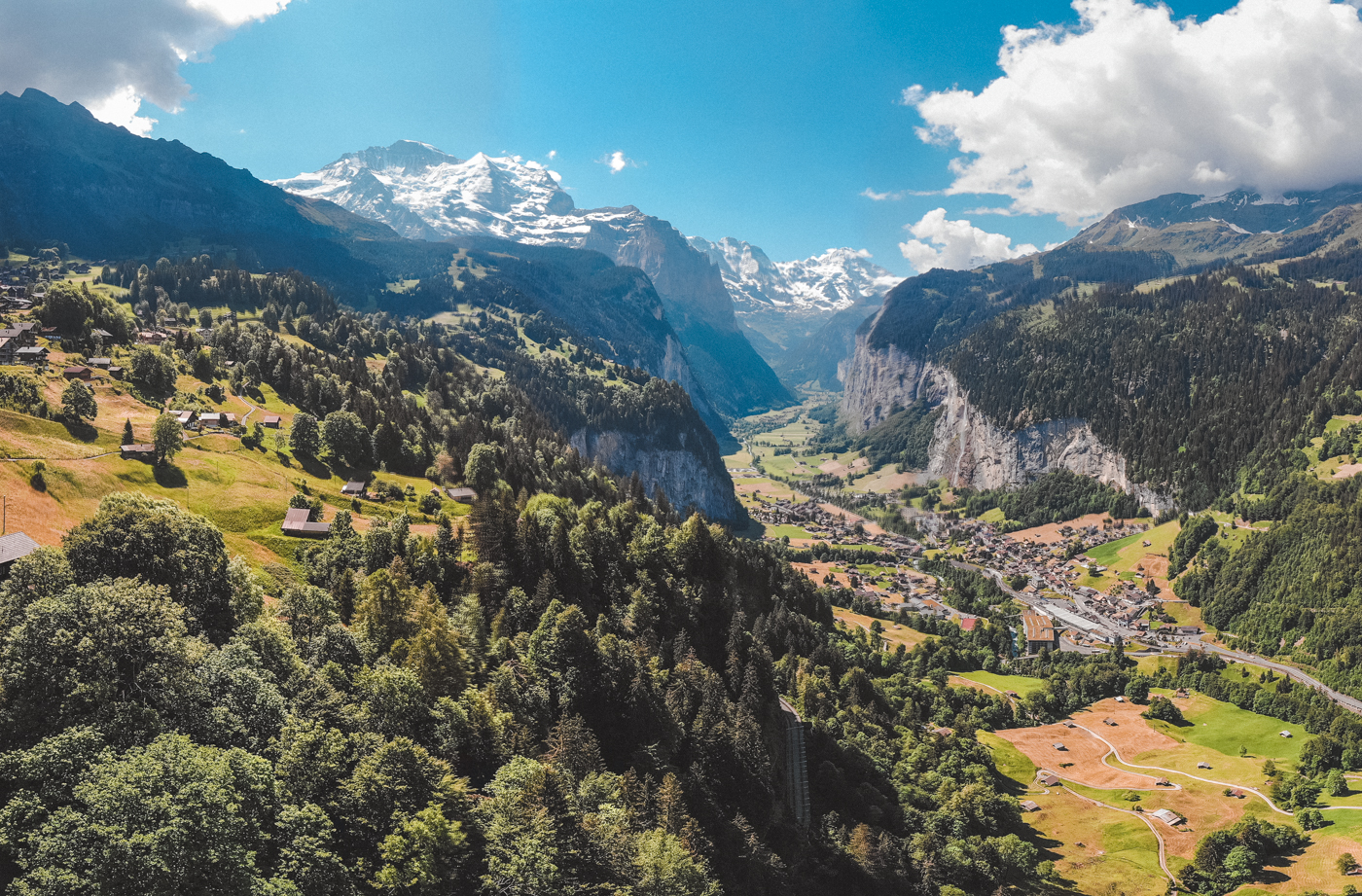
Arrival and Transportation in Switzerland
If you live in Europe, you certainly won’t have an expensive journey if you want to travel to Switzerland. Especially if you live in one of the five neighboring countries.
If you have to fly, the major airports are Zurich or Geneva. We recommend flying to Zurich, as there are better routes from here for a classic Switzerland trip.
Traveling by train in Switzerland
If you want to travel by train, you will be traveling with the SBB (Swiss Federal Railways, or CFF in French or FFS in Italian). If you already know when you will be traveling and have a route planned, we recommend that you buy your tickets in advance. Train tickets are not cheap in Switzerland, but the SBB does offer some great deals here and there.
It is also possible for tourists to purchase the Swiss Half-Fare Card for one month, which currently costs CHF 120. With this card, you pay only half price on buses, trains, ferries and many cable cars. So, depending on your trip and route, it can pay for itself in 1-2 weeks if you plan to use a few gondolas and a lot of public transportation.
Traveling by car in Switzerland
Basics about driving a car in Switzerland
If you are traveling by car, you should consider purchasing a toll sticker (Vignette) in advance. You are not allowed to drive on the highway without one. You can get pretty much anywhere without one, but it’s a bit of a hassle. We would recommend one, but it is up to you to decide, depending on how long you plan to stay in Switzerland.
It is only possible to buy an annual vignette, which costs CHF 40.
Driving in Switzerland is cheaper than taking the train, as long as there are at least two of you. Gasoline is sometimes only a little more expensive than in Germany. Diesel, however, is more expensive than gasoline (sometimes even Super Plus)! But more on that later.
As far as driving is concerned, even ordinary country roads can be very narrow and winding. If you are driving up the mountains, there are often 180° hairpin bends and sometimes you are driving along steep cliffs.
You should have a good command of your car, if you don’t just want to drive on the highway in Switzerland, but also want to drive over a pass.
Please note that manual transmissions are more common in Switzerland than automatic transmissions, if you want to rent a car.
Parking and gas
You can sometimes save a lot of money on gas. We have seen differences of up to 40 rappen (cents) per liter within a city. Sometimes it’s worth exploring the area first and then filling up.
The cantons of Schwyz, Bern or Fribourg are cheaper places to fill up. However, it’s not possible to say this across the board, so you should always keep your eyes open and compare prices.
The disadvantage of driving is that parking fees are often high. However, as everywhere else, prices vary from city to city.
If you don’t have an accommodation with free parking, try to find free parking (yes, they exist!).
Parking Marks in Switzerland
There are the following parking markings:
White spaces: Usually parking areas with a limited parking time for a fee. If there is no sign, you can park for free. Be careful not to park for more than 24 hours in one place, as there are heavy fines. As parking time varies from municipality to municipality, we cannot give any advice.
Blue spaces: This is where you park with a parking disc (be sure to take one with you). There are often specific times when you need a parking disc, but on Sundays it is usually free and you do not have to show the disc.
Yellow spaces: These are usually private or customer parking spaces.
Always pay attention to the times, it is often free at noon (e.g. in Montreux) or free from 8 p.m. (Lausanne). In Thun, we found a parking lot with a parking disk where we could park for free for four hours, even though it was marked white and not blue.
So keep your eyes open.
If one or two of you feel like hitchhiking, you are welcome to try it. But it is very unusual in Switzerland. In the last 6 years we’ve only seen a handful of people who wanted a lift. But it may be worth a try, as Switzerland is considered a very safe country to travel in and hitchhiking can be considered a low-risk activity.
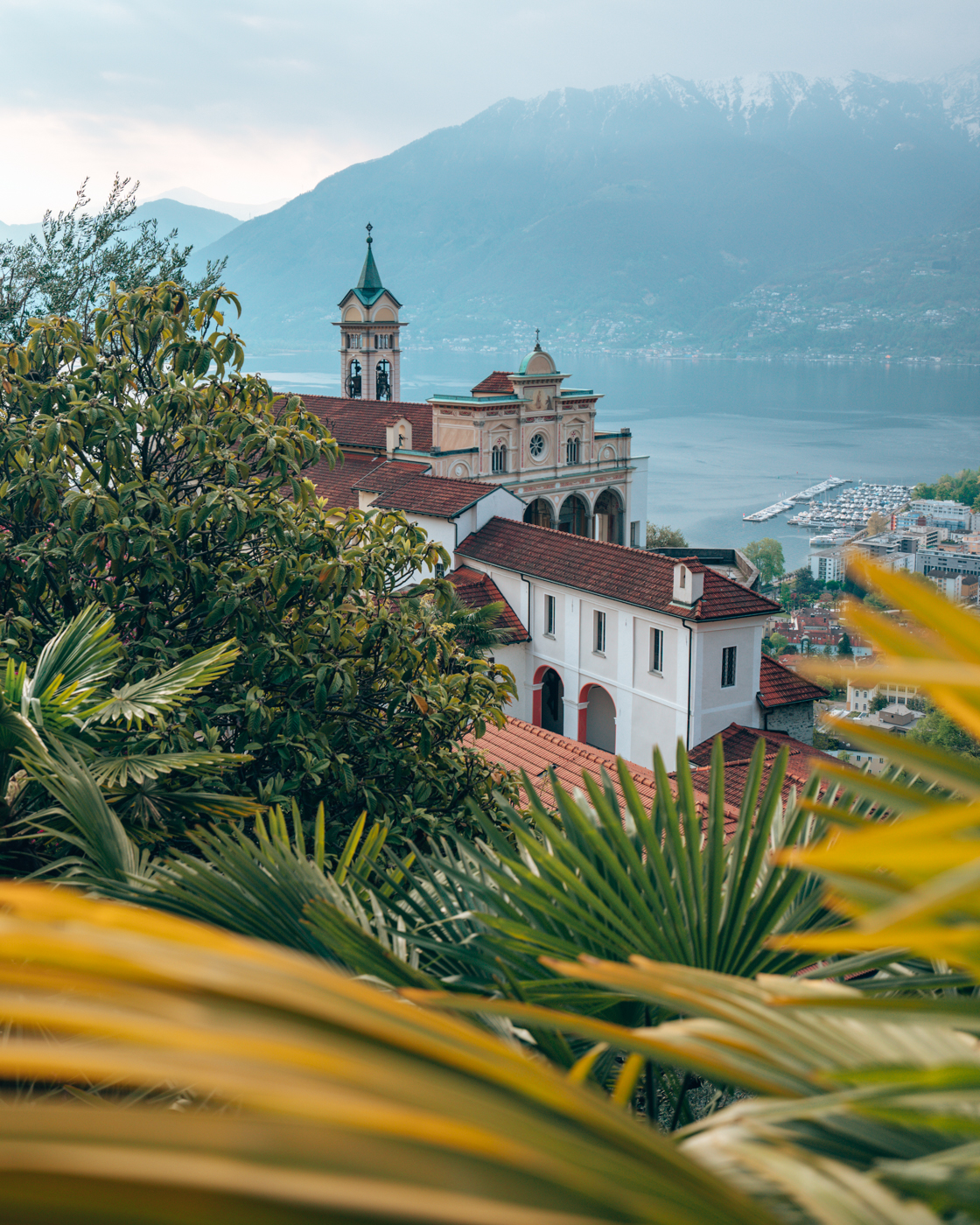
Accommodations in Switzerland on a budget
Budget friendly overnight stays
As long as you are not planning to stay in luxury accommodation, you have a good chance of finding German/Austrian prices for overnight stays. It’s no secret that couchsurfing or housesitting is a real money-saving tip. Switzerland offers a surprising number of housesitting opportunities. More Switzerland on a budget is hard to find. However, we have never tried it ourselves.
The second cheapest alternative would be camping, because the costs for an overnight stay at a campsite are manageable. We once paid CHF 15 for the car and the two of us for one night. We saw prices between 15 – 45 CHF. If you are interested in wild camping, you should find out more about it. In principle, wild camping is permitted above the tree line. Otherwise, each canton and even each municipality regulates this independently!
The “Park4Night” app can be used to find free or inexpensive pitches (for example, camping cheaply on a farm).
For those who find couchsurfing too unsafe and camping too adventurous, we also have Air BnB on offer. We stayed almost exclusively in Air BnBs in one week. The cheapest accommodation was CHF 54 for a beautiful mountain hut with a view of an impressive mountain panorama – the most expensive was CHF 81.
Apartments and Hotels
There are also apartments for rent, but we have no experience with that. Since Switzerland is small, it is possible to choose a place as a base from which to start excursions. However, this great country lends itself to a road trip.
Hotels would be the last option. Sometimes a hotel costs as much as an Air BnB, which is why we sometimes resort to them. The advantage of hotels is that there are often special discounts. In Gruyères, we got a lot of discounts for the surrounding sights and museums. If you stay in the city of Bern, you can use the bus and train for free for the duration of your stay, and so on. So you can save some money here too.
As with any trip, if there are two of you and you can share the cost of accommodation, you’ll save a lot. So grab your partner or best friend and go.
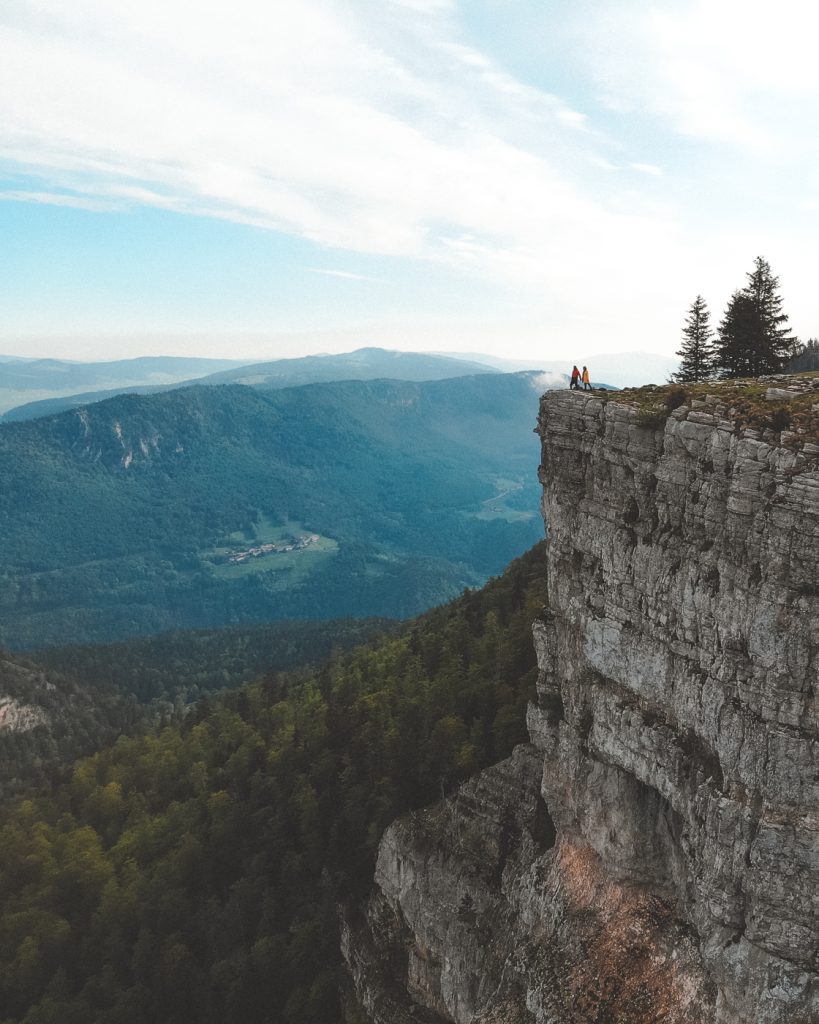
Meals/ Going out in Switzerland on a budget
Cook for yourself
Oh yes, the food. Eating out will probably be the most expensive part of your trip to Switzerland. But there are a few ways to save money. The cheapest option is to bring food from home and cook it yourself (if you arrived by car from Europe). It is important to be aware of the current customs regulations, as you are not allowed to import an unlimited amount of anything you want. Be especially careful with meat and alcohol.
If you are shopping locally, there are often two large supermarkets, Coop and Migros, although Migros is slightly cheaper. However, there are also Lidl and Aldi in Switzerland and they are much cheaper than Migros. If you are on a budget, this is where you should shop.
Restaurants
If you don’t feel like cooking, but normal restaurants are too expensive, you can go to a Migros restaurant for lunch. It is set up like a cafeteria and you can get a hot meal for about CHF 10, depending on what you eat.
However, if the food is weighed, the price can quickly go up to CHF 15 or more. Pay attention to whether the price is based on weight or a flat rate for the menu on offer.
Fast food chains are also cheaper than “normal” restaurants, but significantly more expensive than at home. So don’t be alarmed if your favorite meal at Mäcces suddenly costs twice as much.
Fast food chains are also cheaper than “normal” restaurants. Do you know the Big Mac Index? Switzerland is number 1, so don’t be surprised if even McDonald’s is expensive.
Experience shows that Western Switzerland (except Geneva) is cheaper than Central Switzerland. For example, we ate a pizza for CHF 6 in Montreux, which surprised us very much. The prices for pizza are often around 20 CHF, sometimes you can find something for 12 – 15 CHF, but you have to look a bit.
A vegetarian diet saves more money because meat is – rightly – very expensive in Switzerland. Meat products are usually regional and therefore more expensive.
How much for a meal in Switzerland?
We can’t generally say what a “normal” amount is for eating out in Switzerland. When we go out to eat, the price is around CHF 30 – 35 per person. But you can go much higher. On our trip, we made sure to eat cheaper, but twice we treated ourselves to a normal meal in a restaurant. The rest of the time we cooked or had very cheap pizza.
Some Air BnB operators also offer to cook for you, so take advantage of that. It’s often cheaper than going out to eat.
Also, when choosing your accommodation (hotel or Air BnB), make sure that breakfast is included so you don’t have to worry about it.
Too Good To Go in Switzerland
One last money-saving tip on food: TooGoodToGo is very popular in Switzerland. Especially in big cities like Zurich there is a lot of choice. But even in rural areas there is often at least something from the supermarket chains. So if you want to save money and travel Switzerland on a budget, you should definitely use this app.
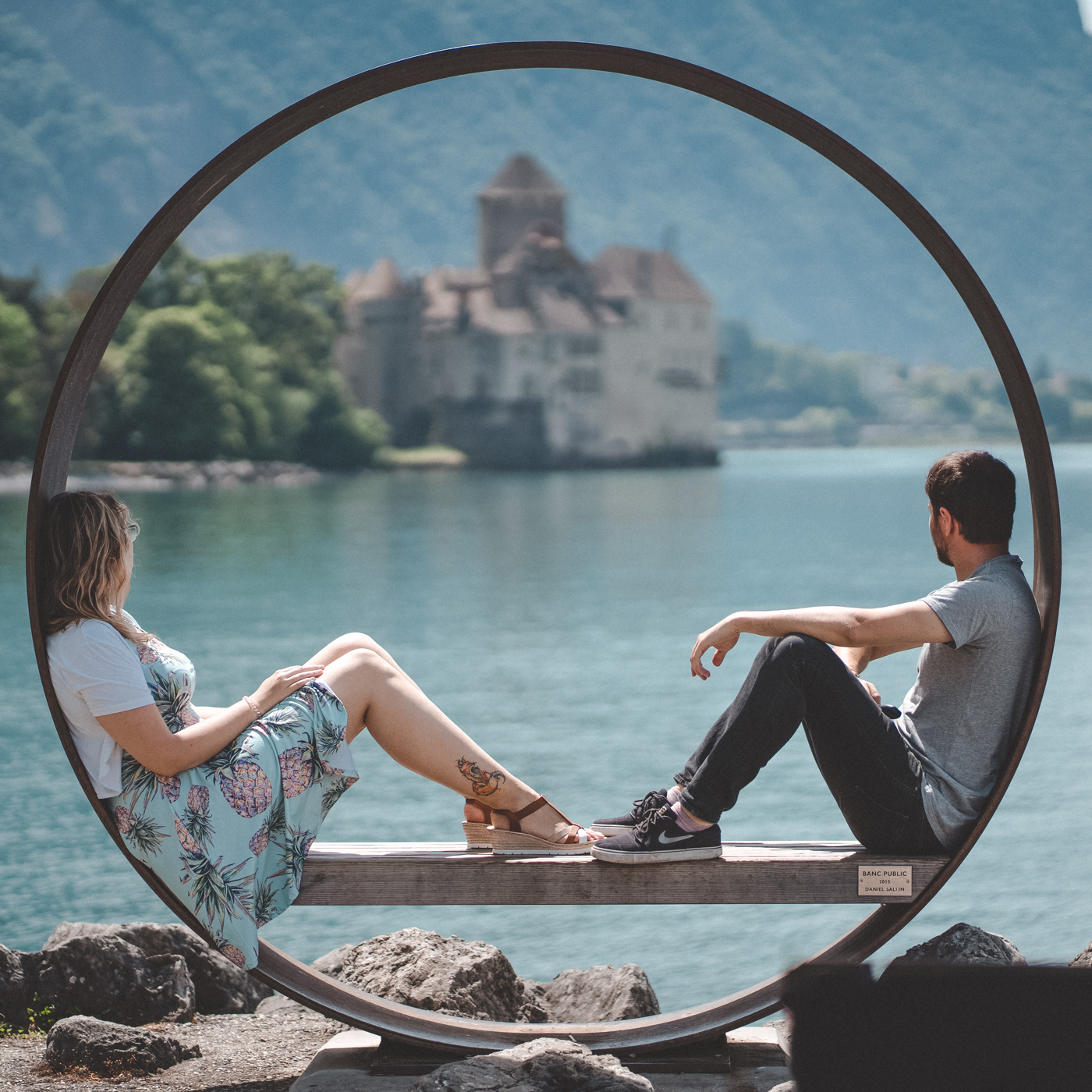
Sightseeing in Switzerland
We’ve all been there – the overpriced tourist attraction. The desire to see something is great, but afterwards the question arises: “Was that really worth 50 dollars?” Sightseeing prices are reasonable here, but gondola rides are quite expensive. Depending on the area, you can expect to pay around CHF 30-70 for a return gondola ride. That is not really budget-friendly – isn’t it?
So here are some examples of free or inexpensive sights to travel Switzerland on a budget:
Free attractions/ Free sights
- River baths in Zurich
- Many museums in Zurich do not charge admission
- Kappel Bridge in Lucerne
- Rhine Falls in Schaffhausen (except you want a boat ride)
- Botanical Garden in Basel
- Botanical Garden in Bern
- Federal Palace in Bern
- Bear Park in Bern
- Creux du Vent – near Neuchâtel
- CERN – research facility for particle acceleration in Geneva
- Rhone and Arve crossing near Geneva
Hikes possible without a gondola
- Gelmersee in the Bernese Oberland
- Gorge de l’Areuse near Neuchâtel
- Lac Bleu in the Valais
- Lake Fählensee and the Saxer Lücke in Appenzell Innerrhoden
- Wildspitz near Zug
- Lake Oeschinen at Kandersteg in the Bernese Oberland
- Schnebelhorn hike in the Töss Valley
- Mythen in Schwyz
- Laseberg or Schilthorn in the Bernese Oberland (toll road, even with vignette! Cost: 10 CHF)
Under 10 CHF p. p
- Ice grotto in the Rhone Glacier (9 CHF p.p.)
- Show dairy at the Maison du Gruyère (7 CHF p.p.)
- Aare Gorge (9 CHF p.p.)
- Blausee (8 CHF p.p.)
- Partnunsee (6 CHF for parking, but the lake is free of charge)
- Bern Minster (free admission, CHF 5 p.p. for the spiral staircase)
- Neufalkenstein ruins (free admission, cost for parking)
- Verzasca Valley in Ticino (parking fees)
Exciting Alpine passes by car or motorcycle
These are possible without vignette or any tolls.
Attention: Only for good drivers!
- Sustenpass
- Grimselpass
- Furkapass
- Gotthardpass (Tremola)
- Nufenenpass
- Klausenpass
- Majolapass
Conclusion – can you travel to Switzerland on a budget?
Yes, Switzerland is not a cheap destination. Go to Italy for the same price and you’ll have much more luxurious accommodations and can eat out every day. It gets even better if you fly to Bali, then you get your own private pool and can eat out 3 times a day without worrying about your money.
But a trip to Switzerland is also possible – even on a budget, although you have to cut back a bit and cook for yourself sometimes.
If you don’t like that at all and want all-inclusive, you’ll either have to spend a lot of money or choose another destination. However, you will miss out on one of the most impressive countries in Europe.
